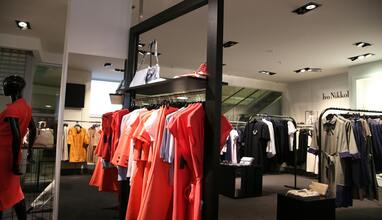Greenwashing vs. Genuine Green Action: France’s Crackdown on Environmental Claims

As climate concerns increasingly shape consumer behavior, companies are eager to showcase their environmental credentials. However, the gap between true ecological responsibility and marketing spin—commonly called greenwashing—has become a major concern. In France, new legal tools, including the Anti-Waste for a Circular Economy Law (AGEC), have been introduced to counter deceptive environmental messaging. These will soon be reinforced by the upcoming European Green Claims Directive, ushering in a new era of transparency and accountability in environmental marketing.
AGEC Law: France Sets the Standard
Enacted in 2020, the AGEC Law (Loi relative à la lutte contre le gaspillage et à l’économie circulaire) aims to shift France toward a circular economy while targeting environmental misrepresentation in business practices. Since January 2023, companies making environmental claims have been subject to stricter rules.
Key provisions include:
-
Ban on Vague Environmental Claims: Terms like “biodegradable,” “eco-friendly,” “climate neutral,” or “green” are now prohibited unless substantiated by rigorous scientific evidence, such as lifecycle assessments. The burden of proof lies squarely with the company.
-
Carbon Neutrality Under Scrutiny: Products advertised as “carbon neutral” must include detailed, publicly accessible disclosures outlining the calculation of emissions, the reduction measures taken, and any offset mechanisms. Offsetting alone is no longer sufficient.
-
Extended Producer Responsibility (EPR): Producers are financially responsible for the end-of-life treatment of the goods they place on the market, incentivizing sustainable product design and waste reduction.
-
Enforcement and Sanctions: France’s consumer protection agency, the DGCCRF, is authorized to investigate green claims and impose penalties of up to €300,000, with the possibility of criminal proceedings for serious offenses.
Increased Regulatory Vigilance
French authorities have significantly ramped up investigations into misleading green claims, particularly in the fashion, food, and cleaning product sectors. In 2023, several major brands were officially warned or fined for using unverified or misleading terminology.
Consumer and environmental organizations also play an active role, with the legal capacity to file lawsuits against companies for deceptive green marketing. This has heightened corporate accountability and sparked a shift toward more cautious—and credible—communication strategies.
The EU Green Claims Directive: A Common Framework
To ensure a level playing field and greater consumer protection across the EU, the European Commission introduced the Green Claims Directive in March 2023. Expected to come into force between 2025 and 2026, the directive is designed to harmonize national laws and combat greenwashing at the EU level.
Highlights of the proposed directive include:
-
Mandatory Scientific Justification: Environmental claims must be supported by standardized methodologies, such as lifecycle analysis or Product Environmental Footprint (PEF) assessments.
-
Pre-Approval by Independent Verifiers: Claims must be validated by an accredited third party before being made public.
-
Ban on Generic Green Labels: Expressions like “eco,” “planet-friendly,” or “net zero” will be banned unless clearly defined and backed by data.
-
Deterrent Sanctions: Member states will be required to implement effective penalties for non-compliance, including potential product withdrawal from the market.
France is expected to align its AGEC law with the directive to ensure consistency and legal coherence across the EU internal market. However, France’s early adoption and enforcement of such rules place it at the forefront of the movement.
A New Reality for Brands and Consumers
These legal developments mark a turning point for corporate environmental communication. Green claims are no longer a marketing free-for-all. Companies must demonstrate real commitment through data, transparency, and third-party verification.
For consumers, this means greater trust in environmental messaging, reduced risk of deception, and clearer options when trying to make sustainable choices.
Conclusion: From Green Talk to Green Proof
The fight against greenwashing is evolving from a public debate into a legal imperative. France’s AGEC law has laid the groundwork for robust oversight of environmental claims, and the upcoming EU Green Claims Directive will broaden and deepen these protections across Europe.
For businesses, the message is clear: environmental responsibility must be more than a slogan. It must be verifiable, measurable, and sincere. In this new regulatory landscape, only genuine green action will stand the test of law—and of public trust.
Hits: 3414 | Leave a comment
Tags:climate, France, Greenwashing, Circular Economy, environment
















